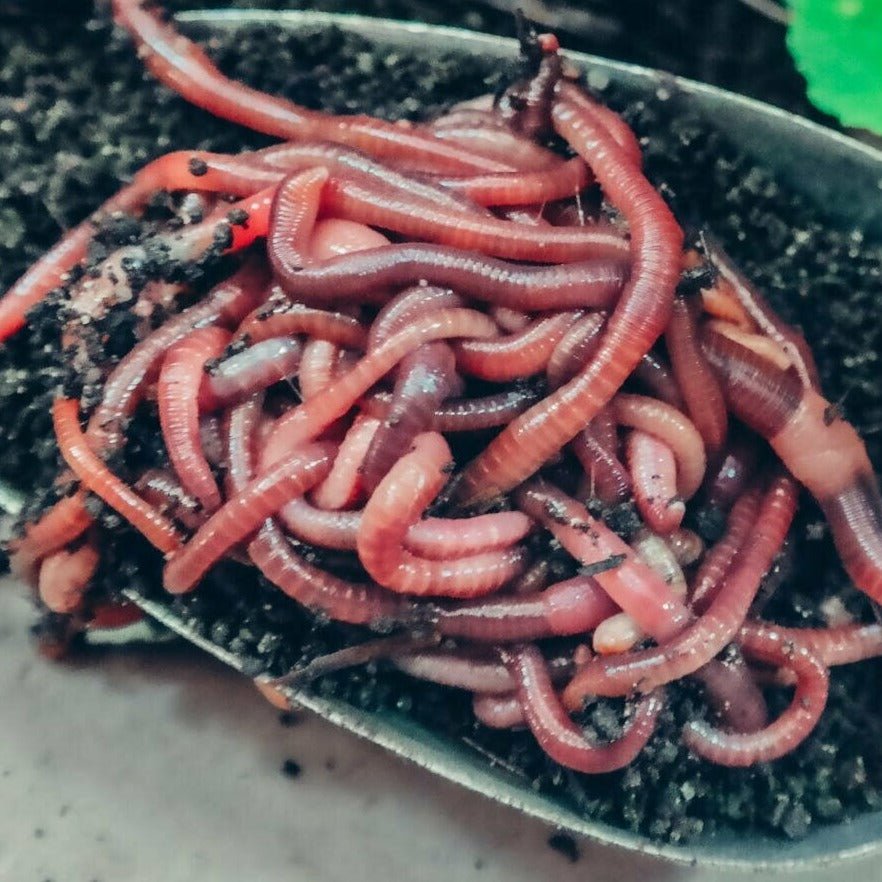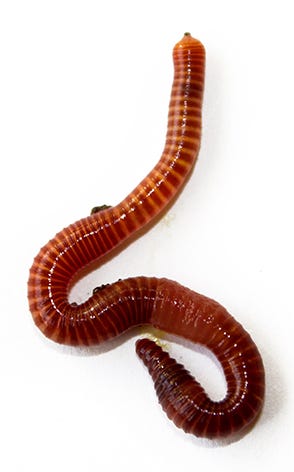Red Wiggler Worms offer for sale - Lasting Waste Monitoring Solution
Red Wiggler Worms offer for sale - Lasting Waste Monitoring Solution
Blog Article
Red Wiggler Worms Demystified: Unlocking the Keys of Vermiculture for Greener Living and Nutrient-Rich Dirt
In the realm of lasting methods for enriching dirt top quality and promoting eco-conscious living, red wiggler worms play an essential yet commonly ignored duty. Red Wiggler Worms. Understanding the details of caring for these worms, maximizing their atmosphere, and utilizing their castings can lead to a greener way of life and much healthier dirt for plants to thrive.
The Duty of Red Wiggler Worms
Red Wiggler worms play a crucial duty in composting systems by effectively breaking down natural issue into nutrient-rich castings. These voracious eaters eat a variety of organic products, such as kitchen area scraps, yard waste, and paper items. As they feed, the worms' digestion procedures damage down the raw material right into a fine, dark, and nutrient-dense material referred to as worm castings or vermicompost.
The spreadings produced by Red Wiggler worms are highly useful for dirt health and plant growth. They are abundant in vital nutrients like potassium, nitrogen, and phosphorus, which are essential for supporting healthy and balanced plant growth. Additionally, worm castings include advantageous germs and enzymes that help enhance soil structure, rise water retention, and boost nutrient uptake by plants.
Benefits of Vermicomposting

Additionally, vermicompost, the nutrient-rich final product of vermicomposting, functions as an exceptional organic fertilizer and dirt conditioner. It improves dirt framework, boosts dirt aeration, and raises dirt wetness retention. These homes add to healthier plants with more powerful root systems and better resistance to bugs and illness. Vermicompost additionally improves the soil with important nutrients like nitrogen, phosphorus, and potassium, promoting plant growth and overall dirt fertility.
In addition, vermicomposting assistances sustainable gardening methods by providing a chemical-free and all-natural choice to artificial plant foods. Red Wiggler Worms. This environmentally friendly technique not only enriches the soil but likewise helps in reducing dependence on unsafe chemicals, advertising a greener and extra lasting means of horticulture
Establishing a Worm Container
When establishing a worm container for vermicomposting, appropriate configuration is essential to guarantee the success of the composting procedure. The primary step in establishing a worm container is picking a suitable container. This can be a plastic bin or wood box that gives sufficient room for the worms to walk around and has correct drain openings to stop waterlogging. Next, a bed linens product such as shredded paper, cardboard, or coconut coir must be contributed to the container. This bedding supplies a comfortable environment for the worms and helps preserve moisture degrees.
After adding the bed linens, introduce the red wiggler worms to the bin. It is recommended to begin with a handful of worms and progressively enhance as they increase. The worms ought to then be supplied with food scraps such as fruit and veggie peels, coffee grounds, and eggshells. It is important to stay clear of including meat, dairy, oily, or salty foods to stop attracting bugs and producing unpleasant odors.
On a regular basis keep track browse around here of the wetness levels and temperature in the worm bin to make certain ideal conditions for the worms. With proper configuration and maintenance, the worm container will efficiently convert organic waste right into nutrient-rich compost for your plants and yard.
Gathering Worm Castings
To effectively gather nutrient-rich worm castings from your vermicomposting system, an organized harvesting method is crucial. When it comes time to collect the worm spreadings, there are a couple of essential actions to follow to make certain an effective process.

Troubleshooting Common Issues
Recognizing and addressing usual challenges that may arise throughout the vermicomposting process is important for official site maintaining a healthy and efficient worm container. Adding excess food scraps can lead to a buildup of moisture and level of acidity in the worm container, potentially harming the worms. One more issue is undesirable odors rising from the worm bin.
Furthermore, if the worm populace is declining or the worms show up harmful, it might be because of ecological stressors such as severe temperature levels or pH levels. Keeping an eye on these variables and making needed changes is crucial for the wellness of the worms. By fixing these common concerns immediately, vermicomposters can make sure a smooth and effective vermicomposting process while preserving a flourishing worm populace.

Final Thought
In final thought, red wiggler worms play a crucial duty in vermiculture by damaging down natural matter right into nutrient-rich dirt. Establishing up a worm container is necessary for effective vermiculture, and harvesting worm castings gives beneficial garden compost for horticulture.
As they feed, the worms' digestion procedures damage down the organic issue right into a penalty, dark, and nutrient-dense material known as worm castings or vermicompost.
The castings created by Red Wiggler worms find more info are extremely valuable for dirt health and wellness and plant development. Including excess food scraps can lead to an accumulation of wetness and level of acidity in the worm container, potentially damaging the worms.Furthermore, if the worm populace is decreasing or the worms show up undesirable, it might be due to ecological stressors such as extreme temperature levels or pH levels. Setting up a worm bin is vital for effective vermiculture, and collecting worm spreadings offers useful garden compost for horticulture.
Report this page